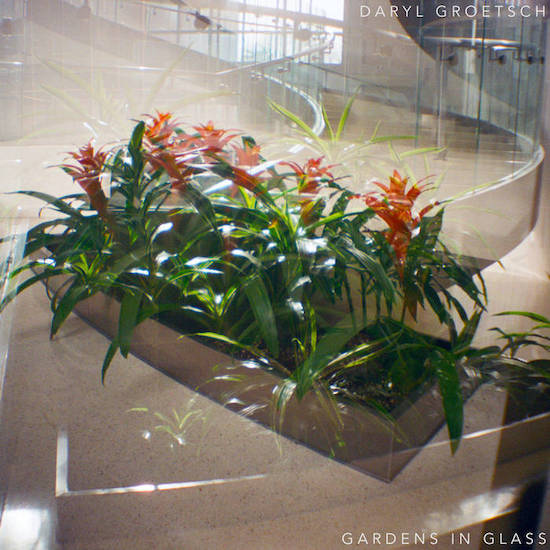“Ambient Music must be able to accommodate many levels of listening attention without enforcing one in particular: it must be as ignorable as it is interesting,” wrote Brian Eno in the liner notes to his seminal 1978 album Ambient 1: Music For Airports. In 1995, David Toop used Eno’s ideas as an anchor for his book Ocean Of Sound, to date the most in-depth study of what ambient music was and could be. Decades away from both those moments, the concept of ambient remains as elusive and contested as ever, punctually attracting bickering and the usual pejoratives: misused, overused, imprecise, lazy, restrictive… But it is in these paradoxes that lies the music’s appeal. Although its idiomatic framework is static, it feels continually evolving. And while its essence might as well be inscrutable and resisting categorisation, once experienced, it becomes inherently obvious.
Since the early 2000s, Daryl Groetsch has been exploring a wide spectrum of ignorable but interesting ambient expressions, from liminal drones to ebullient synth soundscapes. Working under the Pulse Emitter moniker, the Portland-based composer and synthesist’s main thread of work is characterised by dynamic, shape-shifting landscapes and intricate structures, which achieved a triumphant zenith in the effervescent yet disquieting world of 2022’s Dusk. While the aforementioned album garnered wider attention, Groetsch’s focus had drifted in a different direction, ultimately materialising as a sequence of six albums of minimal, nigh traditional ambient released under his birth name. Listening back to them, they appear as engaging but fragmentary sketches of Groetsch’s next vision, one which Gardens In Glass and Frozen Waste now present in its profound full form.
While both albums play with a consciously constrained version of ambient that leans heavily into common tropes, each entertains a contrasting aesthetic strain. With its suggestive forest in a bottle cover and track titles – ‘Tropical Plant Sedation’, ‘Lily Pad Daydreaming’, ‘Rain Atrium’ – Gardens In Glass evokes that early, blissfully naive, new age-phase of the genre. Unsurprisingly, swells of synths and flocks of lush effects dominate the soundscape, their reverberations shimmering like mist left behind by bursting soap bubbles. Throughout the album, the atmosphere teeters between an angelic sort of fluffiness and a dense summer warmth. It feels cosy, like a temptation for the listener to surrender, an effect amplified by passing signifiers that appear meant to guide our minds down some subconscious corridor. Despite their minimal makeup, Groetsch’s soundscapes are akin to a bustling desert: superficially barren but deeply rich with sonic critters whose distinctive phrases shift in and out of existence.
Nomen est omen in the case of Frozen Waste. The five cuts here extinguish any and all traces of the welcoming light that bathed Gardens and replace it with an oppressive darkness. The spirits of Lustmord, Zoviet France, and Jimmy Peggie haunt the chilling desert of ‘Earth Tone’, which vibrates along the thumps of a desolate, half-forgotten beat and provides no escape from the expansive sheets of noise that consume all in their path. Meanwhile, ‘Frozen Waste’ takes the same oblique textures and shapes them into lonely pulses and fragments of synthesiser vibrato to further emphasise the feeling of traversing a demolished, uninhabited world that Dusk had announced with ‘Mulch’. As the ever bleaker whistling notes and wistful sense of emptiness pervade ‘Snow Covered Landscape’, an existential chill overcomes everything, inviting you to return to Gardens In Glass in search of comfort and warmth.


